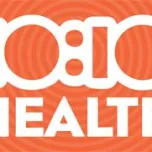What we eat typically represents about one quarter of our personal carbon footprint and of course it is also a major contributor to our health. Luckily a low carbon diet can be a healthy one too. A diet high in locally grown seasonal produce and low in meat is good for the environment and good for our health.
In my home we buy most of our vegetables through a veg-box scheme, we buy very little milk and very little meat. What we save on not buying much meat means we can afford to spend a bit more on organic fruit and veg. Our next step will be to get an allotment so we can grow and own.
For the NHS, food contributes about 390,000 tonnes to the carbon footprint in England. With some concerted effort this can be significantly reduced. Some of the issues to consider are local procurement, seasonal menus, reduced meat content, packaging and waste disposal.
The NHS has some excellent examples of good practice in hospital catering here:
The Cornwall Food Programme 2degrees hosted a web based seminar (webinar) on local procurement, local contracts and in house catering that featured both the Cornwall and Brompton examples. You can listen to a recording of the webinar here. If you haven’t yet joined 2degrees you can do so here. - Nottingham University Hospital Catering Project, click here.
- Trevor Payne, at University College London Hospital, is running a competition for Eating month, challenging his four catering companies to provide low carbon menus for their staff and public cafeteria. You can read Trevor's blog here.
The benefits of a diet low in meat and dairy to reducing cardiovascular disease are described in The Lancet series on climate change and health (see the executive summary for a quick overview). A gentle introduction to eating less meat is offered by adopting Meat Free Mondays and the Part Time Carnivore site has some fun ideas.
I hope you have found these ideas and resources useful - please let me know if you have any comments or suggestions.
